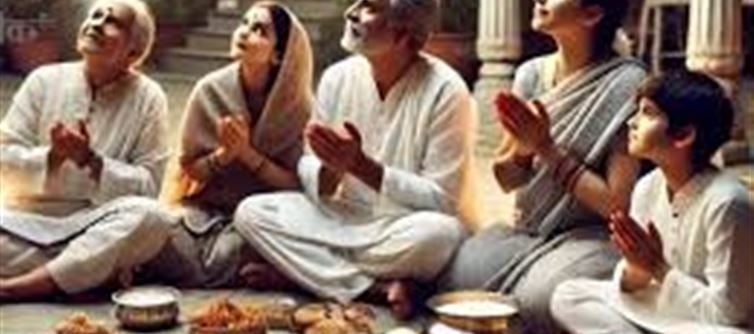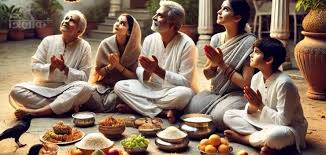
Dwadashi Shraddha, also called Sanyasi Shraddh, Yathi Mahalaya, Baras Shraddha, or Yateenam Mahalayam, holds a special place in the Pitru Paksha rituals of Hindu tradition. Observed on the twelfth day of the waning moon (Krishna Paksha) in the month of Bhadrapada, this occasion is dedicated to honoring ascetics, saints, and renunciates who lived without traditional family ties. Here’s everything you need to know about this spiritual observance.
1. What Is Dwadashi Shraddha?
Unlike other Shraddhas during Pitru Paksha that focus on family ancestors, Dwadashi Shraddha is performed for saints, sages, monks, and renunciates. These noble souls often led lives without families, so devotees perform these rites on their behalf to ensure peace for their departed souls.
2. Names Across Traditions
· Sanyasi Shraddh – as it honors renunciates.
· Yathi Mahalaya – dedicated to Yathis or ascetics.
· Baras Shraddha – marking the twelfth day rituals.
· Yateenam Mahalayam – a Sanskritized reference to shraddha for yogis and sanyasis.
These varied names highlight the festival’s broad acceptance across Hindu traditions.
3. Rituals Performed on Dwadashi Shraddha
· Tarpan and Pind Daan are offered for the departed ascetics.
· Feeding Brahmins and the poor is considered highly auspicious.
· Devotees often donate food, clothes, and other essentials as part of punya (merit).
· Some also visit ashrams and monasteries, offering respect to living saints in memory of those who have passed.
4. Spiritual Significance
Hindu scriptures state that those who renounce worldly ties hold an exalted position. Performing Shraddha for them:
· Grants peace to their souls.
· Brings blessings of detachment and wisdom to devotees.
· Strengthens one’s spiritual journey by acknowledging the contributions of saints to dharma.
5. Why It Matters in 2025
In 2025, Dwadashi Shraddha will hold added importance as people increasingly look to spiritual practices for inner peace. Observing this ritual can remind devotees of the values of simplicity, selflessness, and renunciation—virtues much needed in modern times.
✅ Final Thought: Dwadashi Shraddha is not just about rituals; it’s about remembering those who lived selflessly for society’s spiritual upliftment. By performing these rites, devotees honor the ascetic path and invite blessings of wisdom, peace, and liberation into their lives.
Disclaimer:
The views and opinions expressed in this article are those of the author and do not necessarily reflect the official policy or position of any agency, organization, employer, or company. All information provided is for general informational purposes only. While every effort has been made to ensure accuracy, we make no representations or warranties of any kind, express or implied, about the completeness, reliability, or suitability of the information contained herein. Readers are advised to verify facts and seek professional advice where necessary. Any reliance placed on such information is strictly at the reader’s own risk.




 click and follow Indiaherald WhatsApp channel
click and follow Indiaherald WhatsApp channel